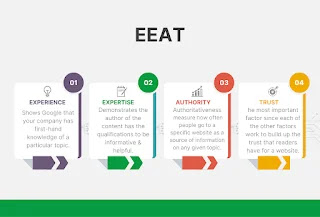
🚀 The Emergence of Generative Engine Optimization (GEO): A New Frontier in Search and AI
Introduction
As generative AI tools like ChatGPT, Google Gemini, and Microsoft Copilot reshape how users find information, a new discipline has quietly emerged: Generative Engine Optimization (GEO). This practice focuses on optimizing content not just for traditional search engines (like Google), but for AI-driven answer engines that generate responses instead of listing results.
GEO represents the next evolution in digital content strategy — and it’s happening faster than most realize.
What is Generative Engine Optimization (GEO)?
Generative Engine Optimization (GEO) is the practice of crafting content in a way that improves its visibility, accuracy, and citation within AI-generated responses. Rather than focusing solely on ranking in search engine results pages (SERPs), GEO targets inclusion in large language model (LLM) outputs.
This shift reflects the rise of AI answer engines — where users get direct, synthesized responses rather than clicking through links.
Why GEO Matters in 2025 and Beyond
1. Search is Changing
Traditional SEO focuses on keyword ranking in Google. GEO focuses on earning trust and visibility in AI-generated content — where citations, training data, and contextual value matter more than keywords alone.
2. Answer Engines Are Rising
Platforms like:
-
ChatGPT (with web browsing)
-
Google SGE (Search Generative Experience)
-
Microsoft Copilot/Bing Chat
…are beginning to replace search, especially for informational and transactional queries.
3. Traditional SEO Isn’t Enough Anymore
Even highly optimized content may never surface in AI answers if it’s not structured or recognized as authoritative by LLMs.
Key Elements of a GEO Strategy
| GEO Principle | How It Works |
|---|---|
| Data-Backed Authority | Cite reputable sources and include original insights |
| Structured Information | Use headings, schema markup, and clean formatting |
| Clear, Concise Language | Write in a way AI models can easily interpret |
| Topical Relevance | Focus on core topics and semantic depth |
| Brand Mentions & Visibility | Increase digital footprint across platforms |
GEO vs. SEO: What’s the Difference?
| Feature | SEO (Search Engine Optimization) | GEO (Generative Engine Optimization) |
|---|---|---|
| Goal | Rank in search results | Appear in AI-generated answers |
| Optimization Target | Google, Bing, etc. | ChatGPT, Gemini, Copilot, AI apps |
| Metrics | Click-through rate, bounce rate, rankings | Mentions, citations, content resurfacing |
| Content Focus | Keywords, backlinks | Context, clarity, data integrity |
| Emerging Tools | Ahrefs, SEMrush, SurferSEO | Perplexity.ai, ChatGPT plugins, SGE metrics |
How to Prepare Your Content for GEO
✅ Write for people — and LLMs
Keep language natural and informative, but structured clearly so it can be parsed and referenced by AI.
✅ Use citations and reputable sources
AI models often prefer to surface and echo content from high-authority domains.
✅ Be the original source
Unique data, case studies, and first-hand insight have a better chance of being cited.
✅ Diversify content formats
AI references aren’t limited to blog posts — PDFs, FAQs, transcripts, and even structured forums like Reddit or Stack Overflow are fair game.
✅ Monitor AI visibility
Search for your brand, content, or quotes in tools like Perplexity.ai, Poe, or even ChatGPT itself (via browsing).
Tools to Watch in the GEO Landscape
-
Perplexity.ai – A research-oriented answer engine that surfaces cited content
-
Google SGE – Google’s AI-powered search answers (currently experimental)
-
ChatGPT with Browsing – Useful for checking what content gets surfaced
-
You.com – Another answer engine gaining traction for real-time results
-
Originality.ai & Content at Scale – Tools that monitor AI influence and originality
Final Thoughts: GEO is Not the Future — It’s the Present
Generative Engine Optimization (GEO) is no longer theoretical. As AI becomes the gateway to information, visibility in these engines is becoming just as critical — if not more — than ranking on page one of Google.
Brands, publishers, and content creators must evolve, focusing on trust, transparency, clarity, and originality. The content that wins in the GEO era is the content that teaches, supports, and earns its place in the AI-driven web.
SEO Keywords:
generative engine optimization, GEO for content creators, how to optimize for ChatGPT, generative SEO, LLM content strategy, search engine vs answer engine, SGE optimization, future of content visibilit



